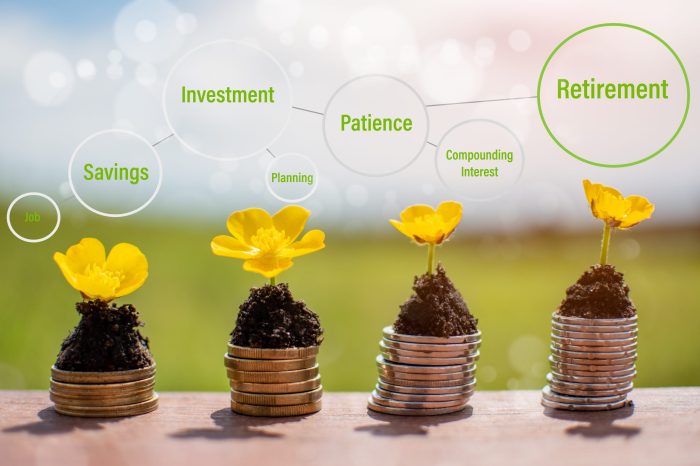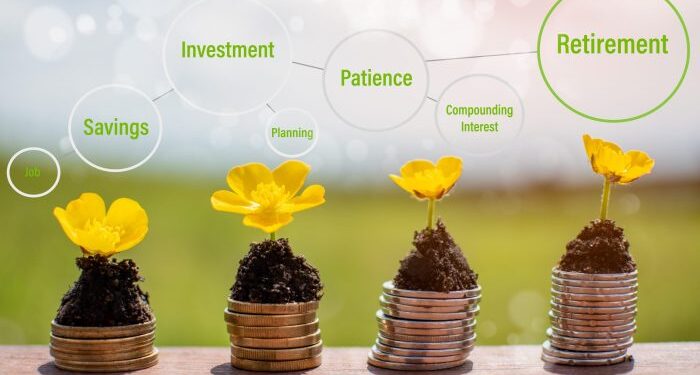Embarking on the journey of Creating a Balanced Financial Lifestyle in a Fast Economy, this introduction aims to capture the readers' attention and provide a glimpse into the importance of financial stability in today's rapid economic landscape.
The following paragraph will delve deeper into the intricacies of achieving financial balance amidst a fast-paced economy.
Understanding the Fast Economy
In today's fast-paced world, the economy is constantly evolving, driven by rapid technological advancements and globalization. This fast economy brings about various characteristics that have a profound impact on personal finances and pose challenges for maintaining financial stability.
Characteristics of a Fast Economy
- Rapid Changes: In a fast economy, trends, and technologies change quickly, impacting industries and job markets.
- Global Competition: Increased globalization leads to competition from around the world, affecting job opportunities and market dynamics.
- Technological Disruption: Constant innovation and technological advancements can render skills obsolete, requiring continuous learning and adaptation.
Impact on Personal Finances
- Income Volatility: Fluctuations in job stability and income levels can make budgeting and planning challenging.
- Increased Expenses: Rising costs of living, especially in urban areas, can put pressure on finances and savings.
- Debt Accumulation: Easy access to credit in a fast economy can lead to high levels of debt if not managed carefully.
Challenges of Maintaining Financial Stability
- Financial Planning: The need for proactive financial planning becomes crucial to navigate uncertainties and manage risks effectively.
- Emergency Preparedness: Building an emergency fund is essential to cope with unexpected expenses or job loss in a fast-paced economy.
- Continuous Learning: Keeping abreast of market trends and upskilling to remain competitive in the job market is vital for long-term financial stability.
Importance of a Balanced Financial Lifestyle
Having a balanced financial lifestyle is crucial for achieving overall well-being and financial stability. It involves managing your income, expenses, savings, and investments in a way that supports your current needs while also preparing for the future.
Benefits of a Balanced Financial Lifestyle
- Financial Security: A balanced financial lifestyle helps you build a safety net for unexpected expenses and emergencies, reducing financial stress.
- Debt Management: It allows you to effectively manage and pay off any existing debts, avoiding high interest payments and improving your credit score.
- Stress Reduction: By having control over your finances, you can reduce anxiety and worry related to money matters, leading to better mental health.
- Future Planning: It enables you to save for long-term goals such as retirement, education, or major purchases, ensuring financial independence in the future.
Differences Between a Balanced and Unbalanced Financial Lifestyle
A balanced financial lifestyle involves prioritizing needs over wants, setting financial goals, and practicing discipline in spending and saving. On the other hand, an unbalanced financial lifestyle may lead to overspending, debt accumulation, and lack of savings, causing financial instability and stress.
Positive Impact of a Balanced Financial Lifestyle
- Improved Physical Health: Financial stress is often linked to health issues such as high blood pressure, heart disease, and insomnia. By maintaining a balanced financial lifestyle, you can reduce these health risks and improve overall well-being.
- Enhanced Relationships: Financial problems can strain relationships with family and friends. By managing your finances responsibly, you can avoid conflicts related to money and strengthen your personal connections.
- Increased Confidence: Knowing that you are in control of your finances can boost your self-confidence and provide a sense of empowerment in other areas of your life.
Strategies for Creating a Balanced Financial Lifestyle

Effective budgeting is key to maintaining a balanced financial lifestyle, especially in a fast-paced economy where expenses can quickly add up. By setting a budget and tracking your expenses diligently, you can ensure that you are living within your means and saving for the future.
Tips for Budgeting Effectively in a Fast Economy
- Set clear financial goals: Define your short-term and long-term financial objectives to guide your budgeting decisions.
- Track your expenses: Keep a record of all your expenditures to identify areas where you can cut back and save.
- Prioritize essential expenses: Allocate your budget first to necessities like housing, groceries, and utilities before discretionary spending.
- Use technology: Take advantage of budgeting apps and tools to streamline the process and monitor your financial health.
Significance of Saving and Investing for Long-Term Financial Stability
Saving a portion of your income and investing wisely are crucial for achieving long-term financial stability. By building an emergency fund, saving for retirement, and investing in assets that generate passive income, you can secure your financial future and weather economic uncertainties.
Remember, saving is not just about setting money aside; it's about creating a safety net for yourself and your loved ones.
Methods for Managing Debt While Maintaining a Balanced Financial Lifestyle
- Prioritize high-interest debt: Focus on paying off debts with the highest interest rates first to minimize the overall cost of borrowing.
- Consolidate debt: Consider consolidating multiple debts into a single loan with a lower interest rate to simplify your payments and reduce interest charges.
- Negotiate with creditors: Reach out to your creditors to discuss repayment options or negotiate lower interest rates to make debt more manageable.
- Avoid taking on new debt: Be mindful of taking on new debt unless absolutely necessary, to prevent further financial strain and maintain a balanced lifestyle.
Adapting to Changes in the Economy
In a fast-paced economy, it is crucial to be able to adapt quickly to changes in order to maintain a balanced financial lifestyle. This requires a combination of awareness, flexibility, and strategic planning to navigate through economic shifts effectively.
Adjusting Financial Habits Based on Economic Changes
When the economy experiences fluctuations, it is essential to review and adjust your financial habits accordingly. For example, during times of economic downturn, it may be wise to cut back on discretionary spending and prioritize saving. On the other hand, in a booming economy, you might consider investing in opportunities that align with the current market trends.
The Role of Flexibility in Financial Planning
Flexibility is key when it comes to financial planning in a fast-paced economy. Being able to adapt your financial goals and strategies based on the changing economic landscape can help you stay resilient and thrive. Whether it's adjusting your budget, diversifying your investments, or exploring new income streams, flexibility allows you to respond effectively to economic shifts.
Examples of Successful Adaptation to Economic Changes
- During the 2008 financial crisis, individuals who diversified their investment portfolios and cut back on unnecessary expenses were able to weather the storm more effectively.
- In times of inflation, adjusting your savings to earn a higher interest rate can help offset the impact of rising prices on your purchasing power.
- Entrepreneurs who pivot their businesses to meet changing consumer demands during economic downturns often find new opportunities for growth and sustainability.
Final Summary
Concluding our discussion on Creating a Balanced Financial Lifestyle in a Fast Economy, we reflect on the key points discussed and emphasize the significance of adapting to economic changes while maintaining financial well-being.
Question & Answer Hub
What are some effective budgeting tips for navigating a fast economy?
Answer: Prioritize essential expenses, track your spending diligently, and adjust your budget regularly to stay on top of financial fluctuations.
How can saving and investing contribute to long-term financial stability in a fast economy?
Answer: Saving and investing help build a financial cushion and generate wealth over time, providing a safety net in times of economic uncertainty.
Why is flexibility crucial in financial planning within a fast-paced economy?
Answer: Flexibility allows for quick adjustments to changing economic conditions, ensuring that your financial plans remain robust and adaptable.










